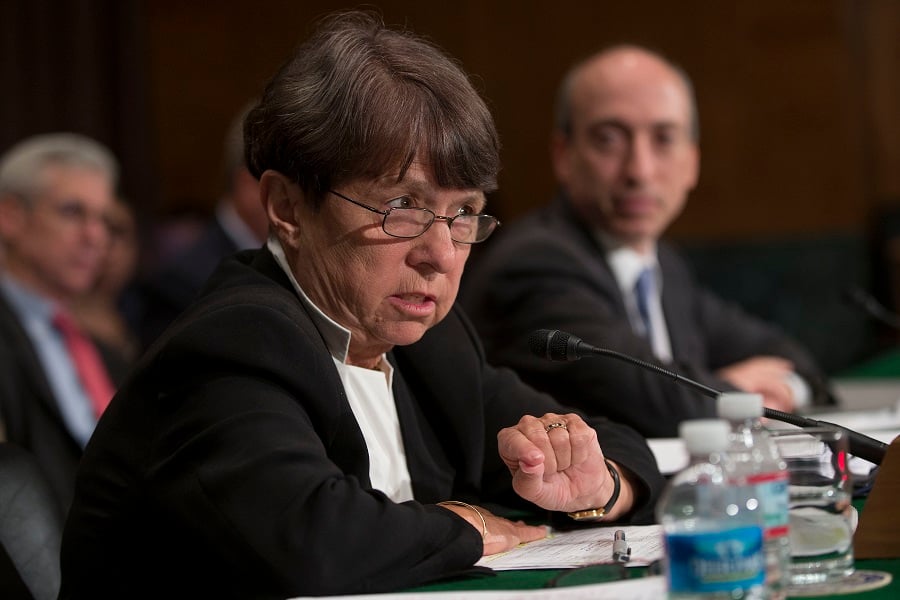The Securities and Exchange Commission plans to propose rules for raising investment advice standards and authorizing non-governmental examinations of advisers next spring, according to its latest regulatory agenda.
The agency does not have to adhere to the timetable, which was posted on the Office of Management and Budget website Wednesday, and routinely misses its self-imposed deadlines. In fact, some observers expected the exam rule to come out this fall. But the agenda does provide insight into the regulator's priorities.
The SEC is projecting that it
will propose in April a rule that requires both investment advisers and brokers to meet a fiduciary standard for advice to retail customers. Advisers already must act in their clients' best interests, or engage in a fiduciary relationship, while brokers adhere to a less stringent suitability standard.
The SEC has struggled to propose a uniform fiduciary duty rule since it was given authority to promulgate such a measure by the Dodd-Frank financial reform law in 2010.
“It shows that they're still not there and ready to do anything,” said Duane Thompson, senior policy analyst at Fi360, a fiduciary duty training firm. “And they're missing two commissioners.”
The Senate Banking Committee approved in a voice vote Thursday the SEC nominees, Republican Hester Peirce and Democrat Lisa Fairfax. It's not clear when the full Senate will schedule a confirmation vote.
SEC Chairwoman Mary Jo White indicated more than a year ago that she
personally favors a fiduciary rule but also has pointed out that she does not yet have a majority of a five-person commission backing her.
Ms. White also supports a rule that would allow non-governmental, or
third-party, examinations of investment advisers. The goal of such a measure is to increase the number of annual adviser exams, which currently amount to only about 10% of the approximately 11,500 registered advisers.
The SEC plans to propose the exam regulation also next April. Even though the agency currently is missing two commissioners, with nominees to replace them stuck in the Senate, the exam rule is seen as the one that could move more quickly.
“We believe it is highly likely we will see a proposal on third-party exams in the months ahead,” said Neil Simon, vice president of government relations at the Investment Adviser Association.
Mr. Thompson thought the exam rule would have been put on a faster track.
“I was a little surprised” by the April deadline, Mr. Thompson said. “If we would have seen any initiatives affect advisers this fall, I thought it might have been third-party exams.”
The controversial fiduciary duty rule is a much heavier lift with a commission that is not at full strength.
Jeff Brown, senior vice president for legislative and regulatory affairs at Charles Schwab & Co., said he expects the SEC to advance a fiduciary rule and that April is a “reasonable deadline.”
But he wants the agency to formulate its fiduciary rule so that it works with the Labor Department's version for retirement accounts, which was finalized last month.
“I would hope the SEC is trying to be consistent with what the DOL has done in order to make compliance easier,” Mr. Brown said in an interview before meeting with lawmakers as part of IAA's Lobbying Day. “Otherwise, you could create a very difficult compliance environment.”
(More: Coverage of the DOL fiduciary rule from every angle)
Before the SEC can move forward with any items on its agenda for next spring, it will have to address another challenge – a presidential change. Ms. White is likely to be replaced early next year by the new president, regardless of who is elected.
“It throws everything up in the air to a certain extent,” Mr. Thompson said.







